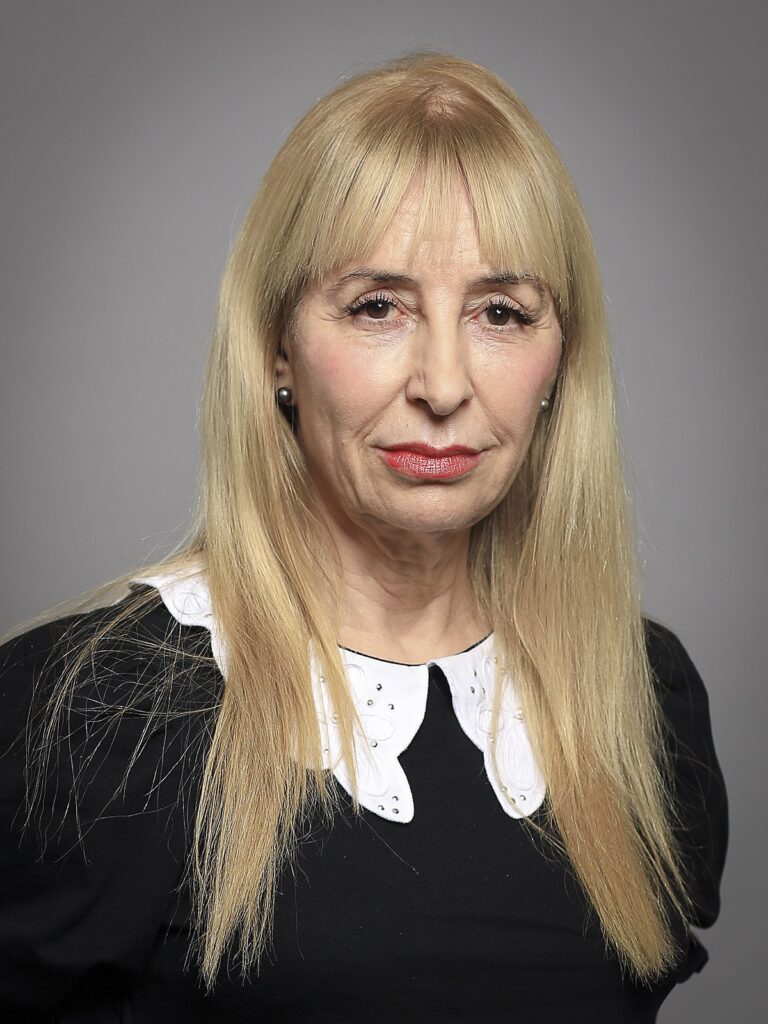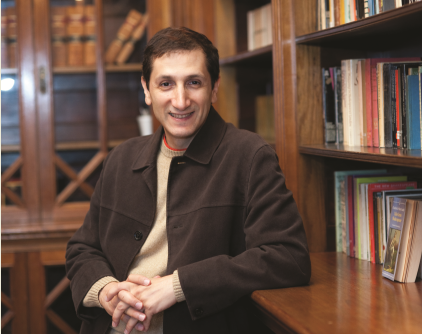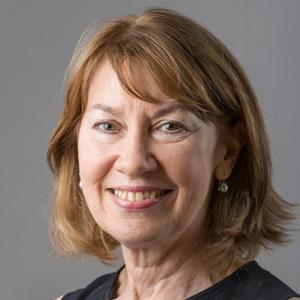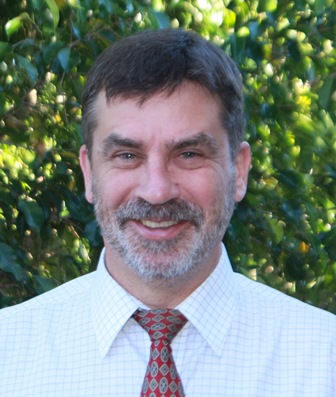Baroness Susan Greenfield

British scientist, writer, broadcaster and speaker
Susan Greenfield was an undergraduate at St Hilda’s College Oxford: she took a DPhil in the University Department of Pharmacology, Oxford, and subsequently held research fellowships in the Department of Physiology, Oxford, the College de France, Paris, and NYU Medical Center, New York. In 1985 she was appointed University Lecturer in Synaptic Pharmacology, and Fellow and Tutor in Medicine, Lincoln College, Oxford. During this time she held a Visiting Research Fellowship at the Institute of Neuroscience, La Jolla, USA, and was the 1996 Visiting Distinguished Scholar, Queen’s University, Belfast. She became Professor of Synaptic Pharmacology in 1996, and has since been awarded 28 Honorary Degrees from British and foreign universities. Currently she is a Senior Research Fellow at Lincoln College, and Honorary Fellow at St Hilda’s College, Oxford. In 1998 she was appointed Director of the Royal Institution of Great Britain, a post she holds jointly with her chair in Oxford, where she continues to head a multi-disciplinary research group exploring novel brain mechanisms linked to neurodegeneration. In addition, she has been a Founding Director of Synaptica, BrainBoost, Neuro- Diagnostics, and Enkephala, all spin-out companies developing a range of approaches to neurodegenerative diseases. In 2000 her research was the subject of a chapter in Bold Science (Anton, W H Freeman), a book profiling science pioneers.
A more theoretical aspect of Greenfield’s work has been in the physical basis of the mind. In 1987 she edited with Colin Blakemore Mindwaves (B Blackwell) and in 1995 published her own theory of consciousness Journey to the Centres of the Mind (WH Freeman). This theory was developed substantially in The Private Life of the Brain (Penguin 2000) which has come to serve as an informal text on various psychology and philosophy courses. As a result of the theories that Greenfield has developed, she has received a grant of approximately $2M from The Templeton Foundation, to direct a multi-disciplinary research project within Oxford University (‘The Oxford Centre for the Science of the Mind’), spanning six departments across humanities, natural sciences and medicine for exploring the physical basis of consciousness and the mind. Her latest book Tomorrow’s People: How 21st Century technology is changing the way we think and feel (Penguin 2003), explores human nature, and its potential vulnerability in an age of technology: the questions and ideas discussed are now the main subject for the ‘Institute of the Future of the Mind’ of which she is Director.
In addition Greenfield disseminates science to other sectors. In 1994 she was the first woman to give the Royal Institution Christmas lectures and has subsequently made a wide range TV and radio broadcasts such as Start the Week, Any Questions, Question Time and Desert Island Discs. She gave the BBC1 Dimbleby Lecture in 1999 and has written and presented a series of four programmes for BBC Radio 4 on drugs, followed by a major six part series on the brain and mind, Brain Story, broadcast on BBC2 in July 2000, and accompanied by a book of the same name. In 1998 she received the Michael Faraday medal from the Royal Society for making the most significant contribution to the public understanding of science, as well as winning the ‘Woman of Distinction’ 1998 award from Jewish Care. She has been profiled in a wide range of papers and magazines, voted one of the 100 most influential women in Britain by the Daily Mail in 2003, and ‘Woman of the Year’ by the Observer in 2000. Also in 2000 she was elected to an Honorary Fellowship of the Royal College of Physicians, and was President of the Classical Association for 2003-2004. Further recognition of her work includes the ‘Golden Plate Award’ from the Academy of Achievement, Washington, in May 2003.
Greenfield has also developed an active role in science policy. In March 1999 she was invited by the Prime Minster to give a consultative seminar on The Future of Science at No 10 Downing Street and, in 2004/5, spoke at the Science and the Economy seminars held at No 11. She has been a Forum Fellow at the World Economic Conference at Davos for the last 5 years, and continues to expand her international activities in a variety of countries and ways: her latest project is to launch a ‘Science Peace Corps’. In 2004 and 2005, she was ‘Thinker in Residence’, reporting to the Premier of South Australia. In 2000 she was in consultation with the Government on science funding, and subsequently requested by the Prime Minister to submit a memorandum ‘Genetics, Science and Risks’. In response to a request in 2002 from the Secretary of State for Trade and Industry, she authored the Greenfield Report ‘SET Fair: A Report on Women in Science, Engineering, and Technology’. In the Millennium New Year’s Honours List she was awarded a CBE, and was granted a non-political Life Peerage in 2001. In 2003 she was awarded L’Ordre National de la Légion d’Honneur, and appointed Chancellor of Heriot Watt University in 2005.
Baroness Susan Greenfield talks about:
- Tomorrow’s People: How future technology is changing the way we think about feel (suitable for a general audience)
- Mind, Brain and Consciousness (suitable for a general audience, or a more technical version for people with bio-medical expertise)
- From Brain to Mind (suitable for either school children or for the general public)
- Selling Science to Society (suitable for a general audience, and may be of interest to people from universities)
- Women in the Future Workplace (suitable for general audience)
- A Novel Approach to Neurodegeneration? (suitable for those with bio-medical expertise)



